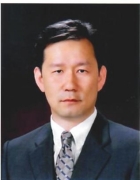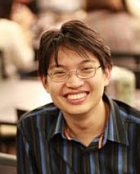
Emeritus Distinguished
Professor Richard J. Simpson PhD FATSE
LaTrobe
University in Melbourne, Australia
Richard Simpson obtained his Ph.D. in biochemistry at
Melbourne University and, currently, is Emeritus
Distinguished Professor at LaTrobe University in
Melbourne. He has made major contributions to the field
of analytical protein chemistry and pioneered many
classical microsequencing strategies and
multi-dimensional HPLC/ PAGE separation tools. As a
pioneer in his field, Prof. Simpson has made numerous
groundbreaking advances in cytokine biology (IL-6, IL-9,
LIF, rEGF, sIL-6:sIL-6R:sgp130 receptor complex). His
team increasingly focusses on clinically relevant
questions, such as identifying novel diagnostic/
prognostic biomarkers (proteins, fusion gene
transcripts, lncRNAs) of colorectal cancer, and
therapeutic role of extracellular vesicles (exosomes,
midbody remnants). With over 600 publications Prof.
Simpson is listed as one of the World’s Most Influential
Scientific Minds (2015, Thompson-Reuter), and a Highly
Cited Author (top 1% in the field of Biochemistry and
Molecular Biology - Clarivate/WoS 2015-2024). He is
listed in “Stanford University List of top 1% of World’s
most influential scientists” (2022/2023) and he is a
ScholarGPS ‘Respected Scholar’ (top 0.05% Scholars
Worldwide). He has an h-index of 113 and > 67,000
citations according to Google Scholar and holds 14
patents. Prof. Simpson has written three leading
textbooks on proteomics with Cold
Spring Harbor Press. Prof. Simpson’s research
contributions have garnered him numerous prestigious
accolades including AMRAD Pharmacia Medal, Honorary Life
Member of ASBMB, named Plenary Lecture ‘Simpson Lecture’
(Australian Proteomics Society), HUPO Distinguished
Service Award, and a Centenary Medal conferred by the
Australian Government,
and a Centenary Medal conferred by the Australian
Government "For service to Australian society in
research and development.
He has played a pivotal role in establishing protein
chemistry in Asia-Oceana (Australasian Proteomics
Society, HUPO, AOHUPO, and Asia Pacific Protein
Society).

Prof. Tae-Seong Kim
Kyung Hee University,
South Korea
Tae-Seong Kim is a distinguished Professor in the
Department of Biomedical Engineering at Kyung Hee
University in the Republic of Korea. He earned his B.S.
degree in Biomedical Engineering from the University of
Southern California (USC) in 1991. He went on to receive
M.S. degrees in both Biomedical and Electrical
Engineering from USC in 1993 and 1998, respectively, and
completed his Ph.D. in Biomedical Engineering at USC in
1999. Dr. Kim conducted his postdoctoral research in
Cognitive Sciences at the University of California,
Irvine in 2000. Subsequently, he joined the Alfred E.
Mann Institute for Biomedical Engineering and the
Department of Biomedical Engineering at USC as a
Research Scientist and Research Assistant Professor. In
2004, Dr. Kim moved to Kyung Hee University, where he
currently serves as a Professor. His research interests
encompass biomedical imaging, bioelectromagnetism,
neural engineering, and assistive lifecare technologies.
He has been pioneering new methodologies in signal and
image processing, machine learning, pattern
classification, and artificial intelligence. Recently,
Dr. Kim has initiated novel projects focused on the
development of smart robotics and machine vision
utilizing deep learning techniques. Dr. Kim is a
prolific author, having published over 380 papers and
twelve international book chapters. He holds ten
international and domestic patents and has received
numerous best paper awards.
Speech Title: Advancements
in Deep Reinforcement Learning for Dual-Arm Robots in
Medical and Lifecare Environments
Abstract:
Robot intelligence is a dynamic interdisciplinary field
encompassing robotics, machine learning, pattern
recognition, and artificial intelligence. Recent
advancements in machine learning, particularly deep
reinforcement learning, have significantly accelerated
the development of this field. These advancements enable
robots to autonomously learn and perform a variety of
tasks, mirroring human capabilities. This presentation
will explore the methodologies of deep reinforcement
learning applied to dual-arm robots, focusing on their
ability to learn and execute long-horizon assistive
tasks in medical and lifecare settings. The discussion
will highlight the potential of these technologies to
revolutionize patient care and support in healthcare
environments.

Dr. Surakameth
Mahasirimongol
Director of the Information and Communication Technology
Center
Office of the Permanent Secretary, Ministry of Public
Health